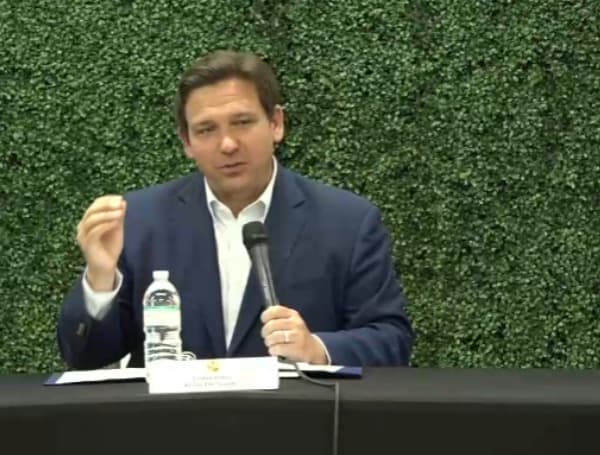Over the past four years, Florida Governor DeSantis has held the line on tuition while ensuring Florida’s higher education system is the best in the nation.
Recently, the College Board’s “Annual Trends in College Pricing” report confirmed that the cost of a bachelor’s degree for the 2022-23 academic year at Florida’s public universities is now the lowest in the country.
This year, U.S. News & World Report also ranked Florida as No. 1 for tuition and fees and the No. 1 state for higher education overall since its rankings inception in 2017.
“A college degree should not put our students into a lifetime of debt,” said Governor Ron DeSantis. “Florida’s public college and university system is number one in the country because we put students first and this achievement proves we are on the right track. We will continue to prioritize offering a world-class education at an affordable price, providing the greatest value for our students.”
In the News: Clinton Pollster Blasts ‘Indefensibly Elitist’ Democrats On Crime
With a continued emphasis on affordability, the average State University System student pays less than $3,400 for a bachelor’s degree after factoring in Florida’s investment in Bright Futures and other financial aid, showing a decrease five years in a row.
Florida has held tuition and fees flat since 2014-2015 compared to a 17 percent increase nationally.
The State University System recently announced a 12 percent five-year increase in graduation rates and a 49 percent year-over-year drop in the cost-to-the-student for a bachelor’s degree. Florida’s State University System has 12 public universities and more than 430,000 students, making it the second largest in the nation.
“The significant investments Governor DeSantis and legislative leaders have made in higher education are pivotal to holding down the tuition and fee costs for Florida’s students, even as they rise across the country,” said Brian Lamb, Chair of the Board of Governors. “This success reflects the emphasis our Board and university leadership have placed on accountability, performance, and cost, all of which attract the best and brightest students who seek the exceptional educational experience Florida’s institutions offer.”
While the federal government has attempted to place the burden of student debt on tax payers, Florida’s 12 public universities have kept costs low and reduced the amount of student loans needed to earn a degree. Within the State University System, over 17,000 fewer resident undergraduate students took out loans in 2020-21 compared to 2019-20, while 75% of resident undergraduate students did not take out any loans.
In the news: How Do I Vote In Florida Midterms?
Increased financial aid, such as Bright Futures and the Florida Student Assistance Grant, increased graduation rates, and consistently low tuition have resulted in fewer resident undergraduate students taking out loans and lower loan default rates.
Visit Tampafp.com for Politics, Sports, and National Headlines. Support journalism by clicking here to our GiveSendGo or sign up for our free newsletter by clicking here.
Android Users, Click Here To Download The Free Press App And Never Miss A Story. Follow Us On Facebook Here Or Twitter Here.
Copyright 2022 The Free Press, LLC, tampafp.com. All rights reserved. This material may not be published, broadcast, rewritten, or redistributed.

